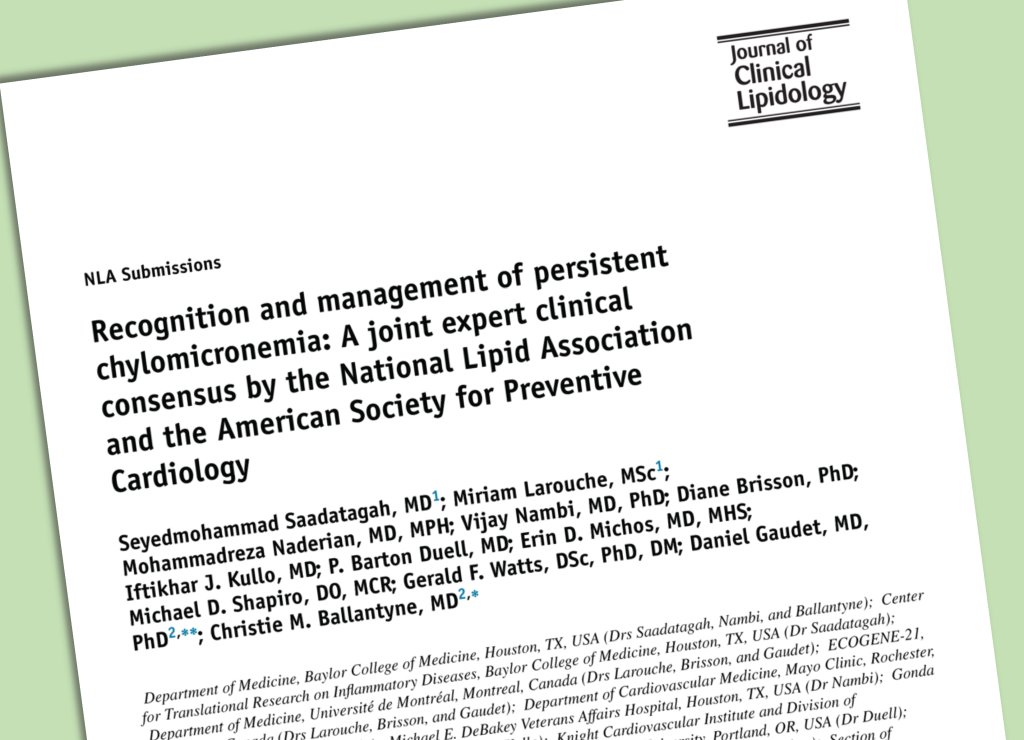
Recently published guidance on the management of chylomicronaemia emphasises risk stratification and clinical criteria over strict genetic classifications to better guide treatment and reduce the risk of severe complications, including pancreatitis. The Joint Expert Clinical Consensus of the National Lipid Association (NLA) and the American Society for Preventive Cardiology (ASPC) suggests that instead of dividing individuals with chylomicronaemia into those with familial chylomicronaemia syndrome (FCS) or multifactorial chylomicronaemia syndrome (MFS), the term ‘persistent chylomicronaemia’ (PC) should be used to identify patients at highest risk of pancreatitis, irrespective of genetic predisposition.
The authors of the consensus define PC as TG ≥1000 mg/dL in more than half of measurements and point out that, although patients with FCS most likely have PC, the vast majority with PC do not have genetic FCS.
They suggest classifying PC into four subtypes:
- Genetic FCS
- Clinical FCS
- PC with ‘alarm’ features
- PC without alarm features
Proposed alarm features are: (a) history of recurrent TG-induced acute pancreatitis, (b) recurrent hospitalisations for severe abdominal pain without another identified cause, (c) childhood pancreatitis, (d) family history of TG-induced pancreatitis, and/or (e) post-heparin LPL activity <20 % of normal value.
The Consensus suggests that most people with chylomicronaemia can be managed with lifestyle changes and conventional drugs but those with PC who are at very high risk of acute pancreatitis may need novel therapies such as apoC-III inhibitors.
“This is a step toward a more pragmatic and personalised approach in the management of chylomicronaemia,” explains NLA President, Professor Christie Ballantyne. “By including this type of criteria and highlighting high-risk features, we can focus our intervention approaches and prevent severe outcomes like pancreatitis. We need a new approach, as the current system is complicated and not understood by most physicians and patients.”
Reference
Saadatagah S, Larouche M, Naderian M et al. Recognition and management of persistent chylomicronemia: A joint expert clinical consensus by the National Lipid Association and the American Society for Preventive Cardiology. J Clin Lipidol. 2025 Mar 28:S1933-2874(25)00065-0.







